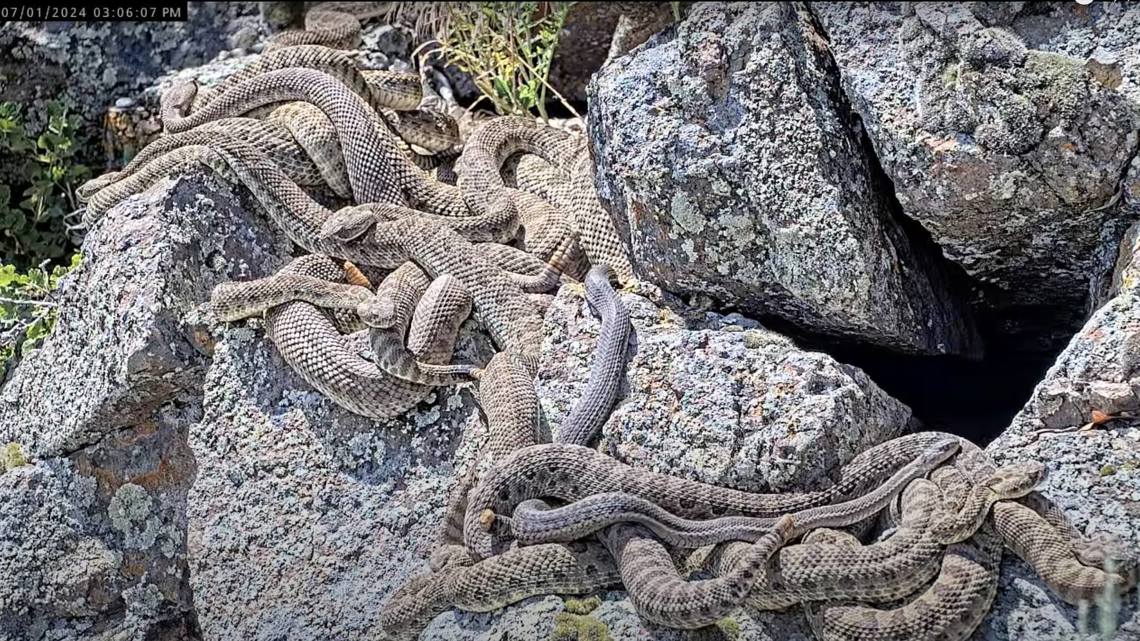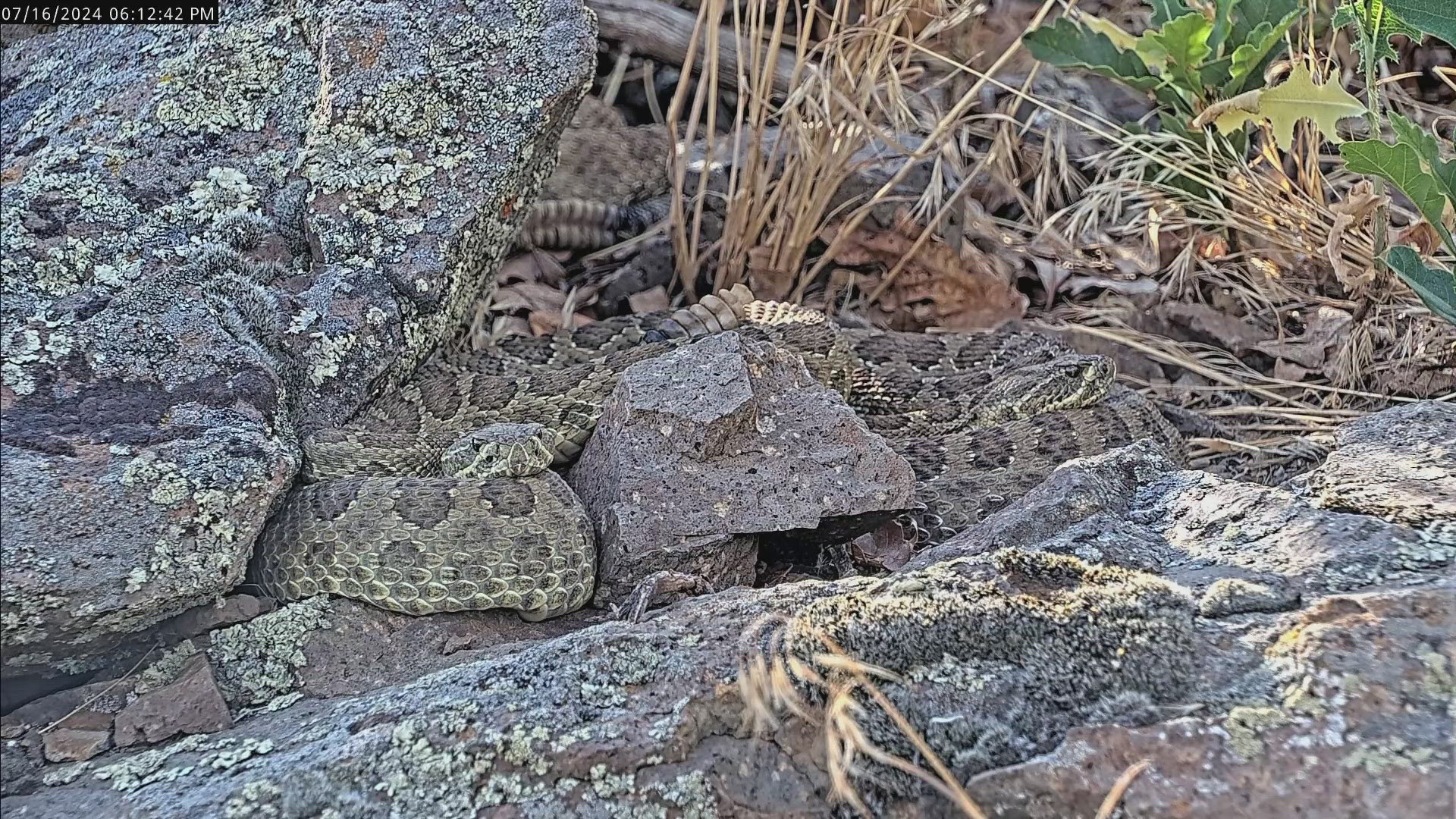COLORADO, USA — Rattlesnakes don't have the best reputation. Researchers at California Polytechnic State University want to change that with a new project in northern Colorado focused on hundreds of prairie rattlesnakes gathered in a "mega-den."
Scientists set up a livestream camera so people worldwide can watch the snakes' private lives 24/7. The rare "mega-den" has geologic features that allow the snakes to hide and shelter from the elements. The den is on private land in northern Colorado, and the location is undisclosed to protect the snakes.
Emily Taylor, a professor of biological sciences at Cal Poly, said Project RattleCam has two goals: to observe snake behavior without disturbing them and to change people's perspectives.
"It's to show people that this is how rattlesnakes actually are," Taylor said. "That they're gentle animals, that just want to be left alone to eat their rodents and care for their babies in peace."
Taylor said prairie rattlesnakes play an important role in Colorado's ecosystem. They eat rodents and are eaten by other predators, like birds of prey. Rodents often carry diseases like Lyme disease and the plague, and snakes help keep these diseases from getting out of control and spreading to people.
"It's important that if we don't necessarily admire them [snakes], that we at least respect them," Taylor said.
Taylor said the den is currently filled with pregnant female snakes. They're expected to have their pups in late August. She said the number of snakes in the den will pick up in September, when males and nonpregnant females return from hunting rodents. The camera will be turned off during the winter, then turned back on in the spring.
The project is mainly funded by donations. It's a community science project, so people are encouraged to share what they see on the livestream.
"This project is for people," Taylor said. "It's a community science project, so it's funded by people and it's for them. Us scientists are just there to help guide and learn as we go."
The researchers also have a camera at a smaller den in California. Taylor said she hopes to get more of these cameras set up across the country, if the project can get the funding.
"We've had interest from colleagues that have rattlesnake dens located in places like Arizona, Idaho and other places like that," Taylor said.
Taylor said she hopes these cameras will show people rattlesnakes aren't so scary.
"We have a number of people who say, 'I didn't like snakes, or I don't like snakes, but this shows me they're not that bad,"' she said.



